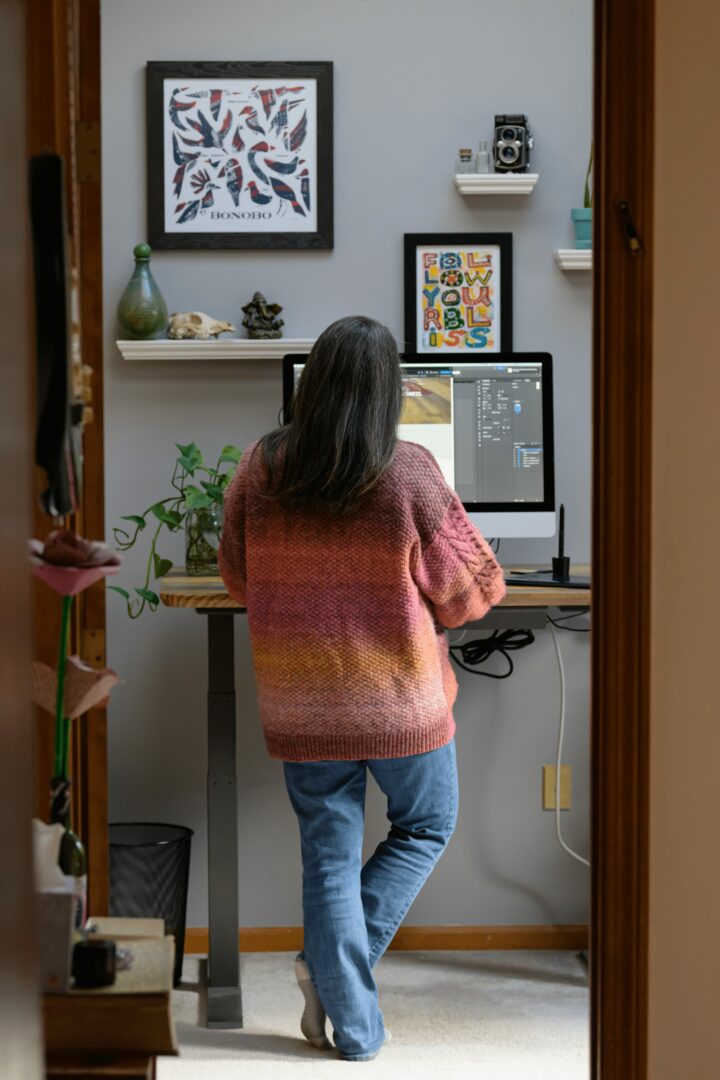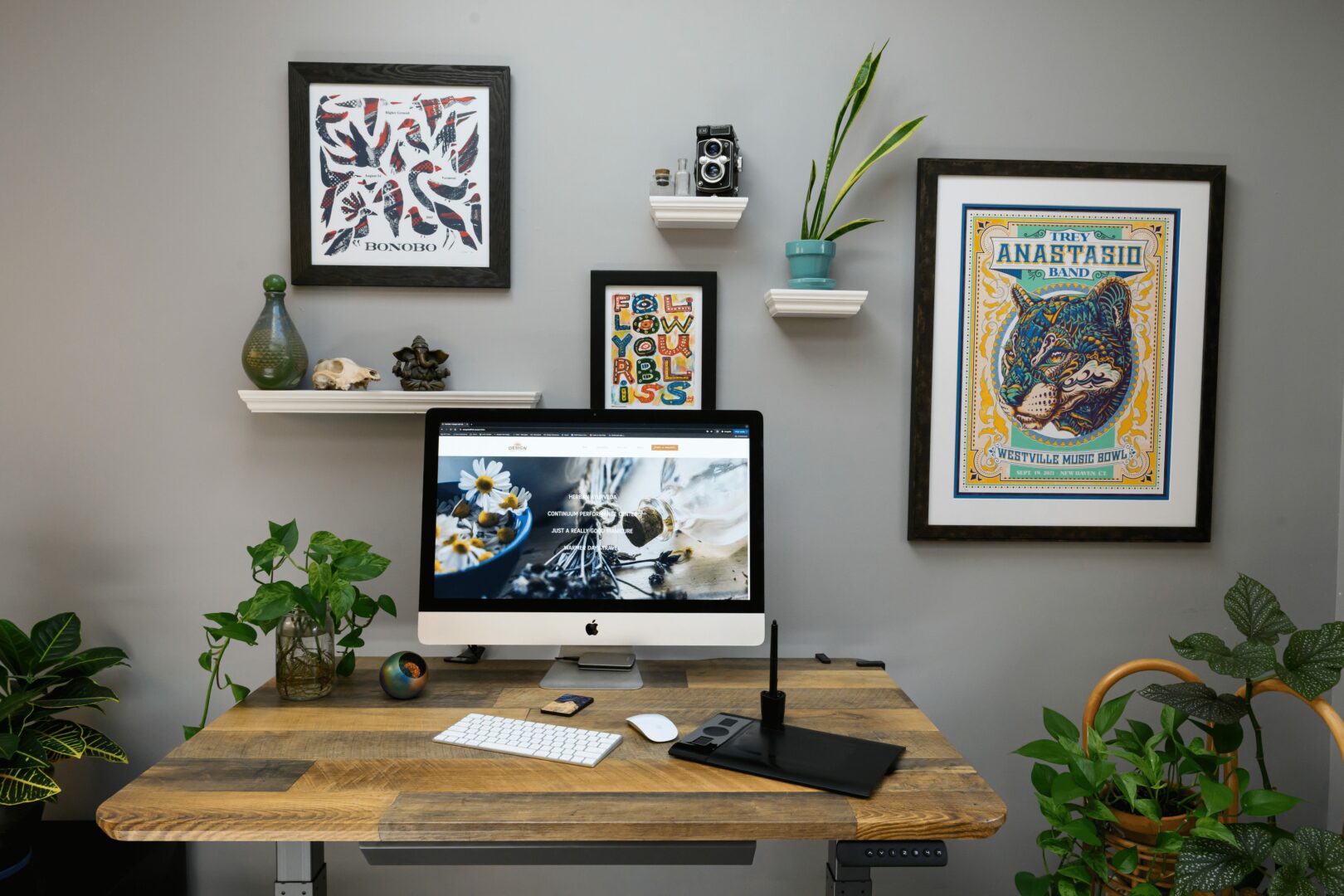Alright – so today we’ve got the honor of introducing you to Julia Goldberg. We think you’ll enjoy our conversation, we’ve shared it below.
Hi Julia, thank you so much for opening up with us about some important, but sometimes personal topics. One that really matters to us is overcoming Imposter Syndrome because we’ve seen how so many people are held back in life because of this and so we’d really appreciate hearing about how you overcame Imposter Syndrome.
I’m not sure imposter syndrome is something one can ever overcome. I know it’s not the answer people want to hear, but that’s been my experience. Over time, I have accepted that it’s a feeling that comes and goes, and knowing that allows me to sit with it. Just because you feel something doesn’t mean it’s true, and feelings pass, so I just wait it out and focus on what I can control.
Most often when I get imposter syndrome it’s because a challenge or an unpleasant situation has come up within my business. It feels awful when things aren’t going well, especially as a person with perfectionist tendencies. The first priority is to resolve the issue and move past it as quickly as possible. Procrastination or avoidance, while natural defense mechanisms, never help.
Second, as much as negative feedback or failure can sting, it’s also a gift, pointing you directly to areas you need to work on to improve your craft or services. If I am feeling like an imposter for lack of skill, maybe I’ll take an online course to learn it. If a client interaction didn’t go well, or I didn’t win a project I really wanted, I may turn to colleagues for insight or read articles or a book that addresses the topic. Taking action can help give me a sense of control, and to restore feelings of hopefulness and confidence. It can also help distract me until imposter syndrome passes.
After a decade of self employment, I’ve come to realize that imposter syndrome is just part of the package. Not only that, but it’s usually an indicator that I am at a growth point, so it’s a good thing even though it feels bad.

Let’s take a small detour – maybe you can share a bit about yourself before we dive back into some of the other questions we had for you?
I’m a multidisciplinary graphic designer focusing primarily on print marketing and logo design. I especially love working on logo and brand projects. Translating a business’s unique value proposition and personality into a visual language that speaks directly to their audience is like solving a puzzle. When I can create something that really resonates with a client and better yet, helps their business succeed, it’s incredibly rewarding. But the best part of my job is the people I work with. So many of my clients are awesome people and just enjoyable to be around. I also love working with businesses that are making positive impacts in our world. It feels great to be just a small part of something positive and to support those who are working for the greater good.

If you had to pick three qualities that are most important to develop, which three would you say matter most?
Stubbornness. Some may call it determination or perseverance. I was told over and over: art isn’t a practical career, you won’t find work, it’s too hard to make money, the competition is too fierce, you’ll struggle, etc. I knew it was something I was good at and I wanted nothing more than to prove them all wrong. Even when I was scared they might be right, I kept going. I think that’s a big part of success. All challenges are opportunities to learn and get better.
I’d say another incredibly impactful quality (or maybe it’s a habit?) is being a lifelong learner. I tend to voraciously consume information – whether that’s learning new skills, reading, taking courses, or listening to podcasts. There’s always something to get better at, even if you’ve been at it for a long time. Willingness to learn has taken me far.
Lastly I’d say being able to listen is really vital. I hear from my clients that I “read their minds” or that I turned their idea into “something real.” The truth is that they give me the information–I just reflect it back to them. You have to learn to ask the right questions to dig deeper. Clients don’t always have the same design vocabulary as me, so it’s my job to understand why they are asking for something so that I can solve the root problem. If I can understand the reason behind the request, I may have a more elegant solution. They may not be able to put their finger on why something doesn’t feel right, so it’s my job to ask them questions until I get some useful direction. And, you can’t take it personally – they know more about their business than you do. It’s not my art project, they are hiring me for a service. You can’t let your ego get in the way of providing that service.

What do you do when you feel overwhelmed? Any advice or strategies?
When I’m feeling overwhelmed, I make lists and write things down. Getting it down on paper helps me sort things out. Making lists and breaking things down into actionable steps helps make things feel more achievable and less overwhelming. Taking action on things feels empowering and gives me a sense of control. I like to take large projects or long term goals and reverse engineer them into bite size pieces.
Contact Info:
- Website: https://designhalffull.com
- Instagram: https://instagram.com/designhalffull
- Linkedin: https://linkedin.com/in/julia-goldberg-dumas



Image Credits
Simple Truth Imaging
so if you or someone you know deserves recognition please let us know here.



